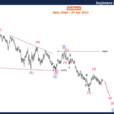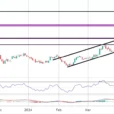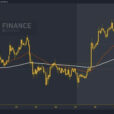Yesterday President Trump surprised many of his own advisers when he announced that he would impose steel tariffs of 25% and aluminum tariffs of 10% on national security grounds. There are rumors that his top economic adviser Gary Cohn is so unhappy with the decision that he is on the brink of leaving the White House. The market voted a thumbs down on the decision as the Dow fell close to 1000 points before closing some of the gap on Friday. While the tariffs aren’t yet finalized, many of our trading partners from Canada to Germany are seeking exemptions so it isn’t yet clear how this will play out. If it is a broad based tariff, it would likely cause ripple effects in global trade and the end result is higher inflation.
Criticism of the tariffs
Larry Kudlow, an outside Trump adviser, sharply criticized the president for the announcement. “All that will happen with steel tariffs is you will raise prices for all import users and that includes businesses and of course consumers. You will wind up hurting millions of people to help 140,000 people in the steel industry. You will be hurting car buyers. Is that really what you want to do?”
Beer giant MillerCoors says that it was “disappointed” at the move, and that it “is likely to lead to job losses across the beer industry.” The rise in aluminum prices would have to be passed on to consumers. “We buy as much domestic can sheet aluminum as is available, however, there simply isn’t enough supply to satisfy the demands of American beverage makers like us,” the company said on Twitter. “American workers and American consumers will suffer as a result of this misguided tariff.”
Cars would likely see big price increases as well. The American International Automobile Dealers Association said, “Both metals are crucial to the production of cars and trucks sold in America today and would raise the sale prices of those vehicles substantially,” the group said in a statement according to CNBC. A statement from the American Automotive Policy Council expressed concern that the change would place the U.S. auto industry at a “competitive disadvantage.”













Leave A Comment